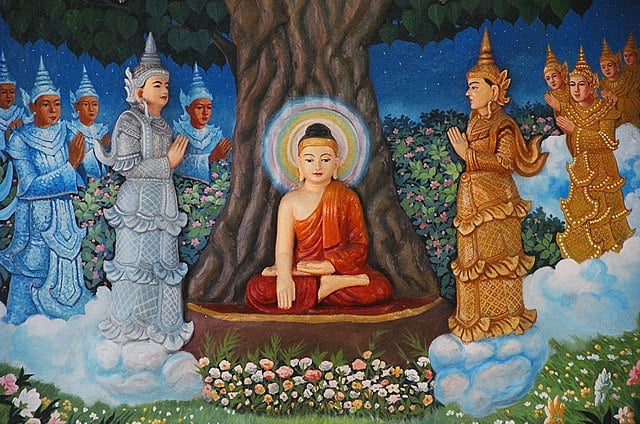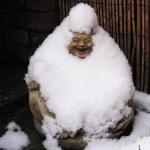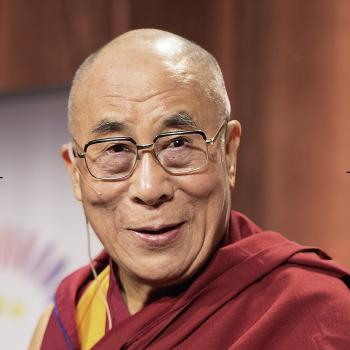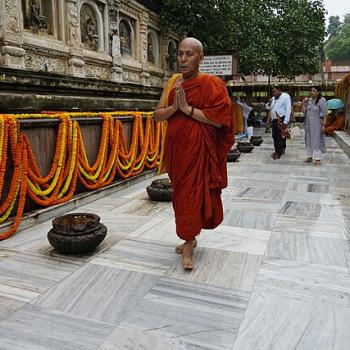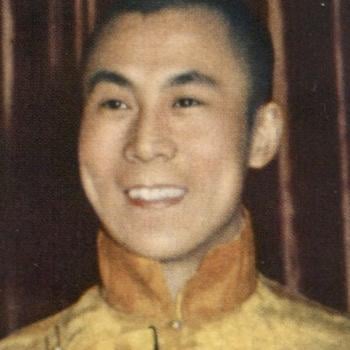Here’s a question for Bodhi Day. Was the Buddha a verifiable historical person? And was his enlightenment a historical event? The plain truth is that there is no documentation of the life of the Buddha outside Buddhist scriptures. And the earliest physical evidence that there was ever such a person dates to the reign of Ashoka, about 268 to 232 BCE. Dates of the life of the Buddha vary, but they range from about 567 to 487 BCE to as recently as 448 to 368 BCE. So there is no physical evidence that dates to his probable lifetime.
Further, the early scriptures — our only source of information about the Buddha — for the most part were not committed to writing until the 1st century BCE. Instead, they were preserved by being memorized and chanted. This led to a number of different chanting traditions, in different dialects, and in places this resulted in wildly different versions of the same scripture. And we have no way to tell which version is closest to an “original.” Even so, the basic, foundational doctrines are presented consistently in them. See “Will Ancient Gandharan Scrolls Change Buddhist History?” for a more in-depth look at the origins of and issues with the early scriptures.
I wrote in my book The Circle of the Way: A Concise History of Zen from the Buddha to the Modern World (Shambhala, 2019) that most academic historians appear to regard the Buddha as more of a hypothesis than a person. They think someone was the originator of the foundational teachings, but they can’t say anything for certain about that person. The story of the life of the Buddha appears to have evolved over a few centuries, reaching its classic form in the epic poem Buddhacarita, composed about 100 CE. The story came to be stuffed with supernatural elements that many modern Buddhists prefer to disregard, although others still place great importance in them. At least some of the non-supernatural parts of the story are unlikely. For example, the Buddha is portrayed as the son of a king. But historians today say that his clan, the Shakya, didn’t appear to have had kings during his lifetime.
Was There a Buddha?
Opinions vary. First, it’s not unheard of for there to be no hard evidence of the existence of plausibly historical ancient people. For just one example out of many, there is no evidence of the existence of Homer, other than his being named the author of The Iliad and The Odyssey. It’s possible everything we think we know about Homer was invented. It’s questioned whether the two famous epic Greek poems attributed to him were written by one person or several. It’s likely this is an argument that will never be settled until someone invents time travel.
In the case of the Buddha, much of the argument in favor of his existence centers on the teachings themselves. They were a significant departure from the Brahmanism of his day. They didn’t think themselves up, obviously. But were they the product of one person, who came to be identified as the Buddha? Or did a committee invent them and attribute them to a fictional person? The best answer to this, I think, comes from the religion scholar Karen Armstrong in her book Buddha (Penguin, 2004). “This mass of teachings all has a consistency and a coherence that point to a single original intelligence,” Armstrong wrote, “and it is hard to see them as a corporate creation.”
Other historians argue that it’s irresponsible for scholars to speak of the Buddha as a “real” person without more evidence. And I respect that. But those who support the “committee” hypothesis have yet to bring forward any evidence for it.
The Historical Buddha: Does It Matter?
Buddhism is not a “revealed” religion, meaning that its teachings are not believed to have come from a god, revealed to humankind by a prophet. Further, the Buddha did not teach people what to believe, but instead he provided a path of practice for realizing enlightenment for ourselves. My first Zen teacher, the late John Daido Loori, once told us in a talk that if it could be proved the Buddha never existed, it would make no difference. It’s the practice that’s important, however it came to us.
This opens the door to another question, which is, what is enlightenment? It’s difficult to come up with a simple definition that satisfies everyone. The best I can do is to call it the perfection of insight into the Buddha’s teachings, or the perfection of wisdom of the true nature of reality. Here’s something I wrote years ago that explores the question from the perspective of different Buddhist traditions.
Through the centuries many of us have had breakthroughs in which our old, conditioned ideas about “reality” fall apart and are replaced by something entirely different. So I am persuaded there’s something to this enlightenment thing. I don’t know whether it’s ever “complete” or “perfect,” however. And it won’t solve your problems, make your teeth whiter, or fix your gimpy knee (I wish). These breakthroughs do change how you relate to the imperfections of life, however, in ways that really are liberating.
And to spiritual seekers everywhere, happy Bodhi Day.
